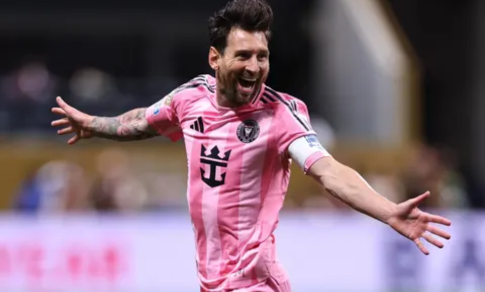When Lionel Messi arrived in Miami in the summer of 2023, many assumed his move marked the gentle winding down of a legendary career. Critics called it a “retirement tour” in the sun, far from Europe’s competitive spotlight. Instead, the opposite unfolded.
In just 30 months, Messi has rewritten the economics and global standing of American soccer. His contract extension through 2028 signals not merely a sporting commitment but a business decision laser-focused on the momentum building toward the 2026 World Cup in North America.
For Inter Miami’s ownership group—David Beckham and brothers Jorge and José Mas—Messi became the centerpiece of a transformation few could have predicted. Updated financial estimates for 2025 show the magnitude of his impact. Before he signed, Forbes valued Inter Miami at $585 million. Today, that figure has surged to between $1.2 and $1.3 billion, the highest in MLS and a growth of roughly 120% in two years. Jorge Mas has openly acknowledged that Messi “completely changed the economics of the league,” affecting sponsorships, media visibility, club revenues, and the commercial environment across MLS. Mas expects Inter Miami’s yearly revenue to rise to $180–200 million in 2025—more than triple its 2022 revenue.
Messi’s influence extends far beyond the club’s valuation. His contract itself illustrates the new economic model he introduced. While his guaranteed salary is about $20.4 million annually, the true value lies in revenue-sharing agreements with Adidas and Apple TV+, along with an option to purchase ownership stakes after retirement. Messi is not simply an employee; he is structurally embedded as a partner in the club’s long-term growth and the expansion of MLS.
Fan demand has skyrocketed across the country. Ticket prices for Inter Miami home matches in the secondary market have increased by an average of 500%, with some games surpassing 1,000%. Away-game tickets have sold at unprecedented prices, averaging $712 in some cities. His jersey remains MLS’s top seller for the second straight year, while overall merchandise revenue has multiplied several times over. Even Miami’s tourism sector is experiencing the ripple effect: local industry reports show a jump of around 15% in sports-related tourism since his arrival.
Messi’s arrival also accelerated MLS’s largest broadcasting agreement—the $2.5 billion, decade-long deal with Apple TV+ for MLS Season Pass. Subscriber numbers have surged, doubling during peak periods, according to league data. MLS commissioner Don Garber has described Messi as “a unicorn of unicorns,” adding that the global icon “reset the trajectory” of the league. Messi’s influence has also pushed clubs across MLS to relocate home fixtures to larger venues. Crowds reached an all-time league record of 72,610 when Inter Miami visited Chicago—numbers once unimaginable in American soccer.
On the pitch, Messi’s impact has been equally transformative. Inter Miami went from a struggling team to one of the strongest sides in the league. He ended the 2025 regular season as MLS’s top scorer with 29 goals and added 17 assists in 28 appearances—directly contributing to 46 goals, one of the best single-season tallies in league history. Already named league MVP the previous season, Messi is widely regarded as the leading contender again. His presence has attracted former Barcelona teammates—Sergio Busquets, Jordi Alba, and Luis Suárez—turning Inter Miami into the league’s most star-studded team. With a roster valued at $49 million, they now hold the highest wage bill in MLS.
The decision to extend Messi’s contract until age 41 is not about expecting peak athletic performance for the entire duration.
Rather, it is strategically aligned with broader goals. Messi will lead Inter Miami into the opening of Miami Freedom Park in 2026, a world-class stadium expected to become a major commercial hub. His presence also anchors MLS’s marketing strategy as the U.S., Mexico, and Canada prepare to host the largest World Cup in history. Commissioner Garber has described the tournament as “rocket fuel” for soccer in the region, with Messi positioned as the face of the sport’s next growth phase in America.
Reports indicate that Messi’s extended agreement includes future ambassadorial duties and potential ownership rights, underscoring his role as a long-term stakeholder in MLS’s expansion. In the United States, soccer has often struggled to break into the mainstream. Messi has altered the conversation entirely.
His ongoing partnership with Inter Miami and MLS represents one of the most powerful case studies in global sports branding, and the world is closely watching how this new chapter will continue to reshape the sport’s economic landscape.








ADD A COMMENT :